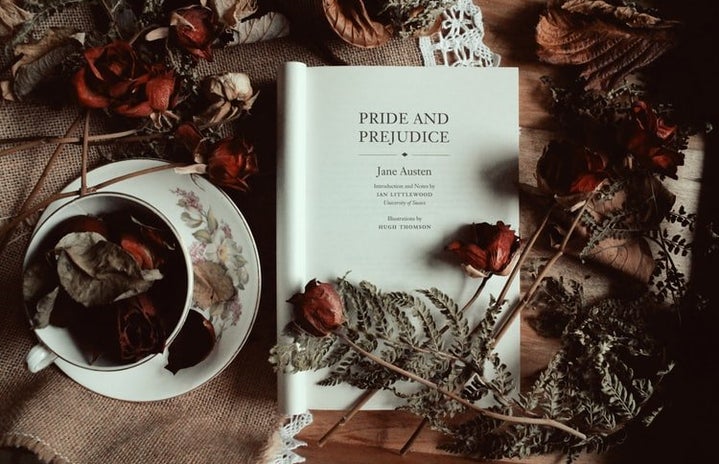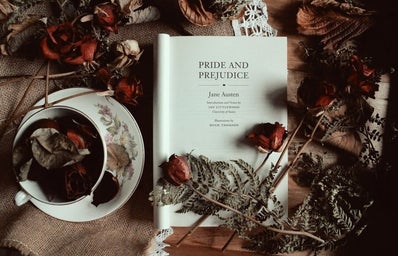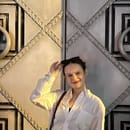Over the course of the last few years, I’ve become quite a Jane Austen fanatic. The time I took reading these books was enjoyable, but I had a few lingering questions as I eagerly read through the collection I received for Christmas. Each heroine (or heroines) has distinct and unique attributes, which I applaud Austen for, especially considering the times that she grew up in – she created a characteristically diverse cast of women in her stories. Some, like well-known and loved Elizabeth Bennett, portrayed by Keira Knightley in the 2005 Pride and Prejudice adaptation, are headstrong, playful, and ambitious. Others, like Fanny Price, the protagonist of Mansfield Park, are more unassertive and sensitive to the dramatic situations that they are thrust into. I honestly can’t blame them for that though.
To summarize: is there a middle-ground for Austen’s female characters? Why do they have to be one or the other?
For historical context and based on mine and many other’s presumptions, Austen had to appeal to the standards of her time (the standards of men) when she wrote – or else her stories wouldn’t have been published and gained as much stardom as they do even hundreds of years later. By giving in to these gender norms, the idea of “ideal women” definitely pushed the agenda of having two kinds of personalities in her stories.
Elizabeth Bennett and Emma Woodhouse
Flirty, confident, and clever – Elizabeth and Emma exemplify the headstrong presumptuousness of Austen’s heroines. While Elizabeth, on the other hand is much more self-aware and less arrogant, arguably, than Emma, they still share the defining personality characteristics of one of the archetypes of female characters in these novels. They both have made it very clear they will disregard the “universal truth” (spoiler alert: they don’t) and continue to live their lives as independent women. Mr. Darcy and Mr. Knightley, however, wreck these plans. There are many men in the stories who are presumably tempting, such as Wickham and Frank Churchill, but there really isn’t anything like older and matter-of-fact men to sweep you off your feet, is there? These women are shameless flirts as well, albeit, Emma usually does it without realizing it, but Elizabeth is quite cheeky and she knows it. They are also both extremely clever, Elizabeth with her strong insightfulness, and Emma with her scarily accurate successes in matchmaking. In my opinion, the main theme of these women is the way they are often portrayed as overconfident (presumptuous). Jane Austen even thought she would be the only one who liked Emma. But this “overconfidence”, is really just the fact that they are bold and they don’t let people tell them what to do. In Austen’s time, a woman being independent was something you needed to cover up with something even worse.
Fanny price and Elinor dashwood
Fanny and Elinor are both quite introverted, and tend to keep their feelings to themselves. This is what was desired of that time, but I cannot help but think why we think of these girls in a negative connotation. The standard for Austen’s novels was protagonists who were like Elizabeth Bennett. Fanny, by the other characters in Mansfield Park, is described as weak a countless amount of times. She was a very smart person, but the passiveness of her character overshadowed it to a ten. Similar to Elinor, she is often disregarded while others gain the spotlight in love, happiness, and even in drama. Both of the girls did their best to avoid and stop arguments within their households. They both had to pick up and leave all that they knew at the beginning of their stories. They were often the ones people came to with advice, or to escape the dramatic whims of others. The word passive has always been used negatively, and as a shy person myself, I think that needs to change. Elinor is scared to be with the man she loves, and Fanny? Even more scared. There are varying degrees of these types of girls, and you could say that for the presumptuous ones as well. Emma obviously takes it too far, and Fanny takes it too personally ( not to discredit her, I love her).
It’s sad that society did not give these remarkable women enough room to shine in different ways. In the end, a middle-ground is something you should go search for – this is all up to your interpretation. If you’re ever able to snag a copy of one of Jane Austen’s novels, please do. It’s a world full of love, humor, wit, drama, and mysterious Mr. Darcy’s.


